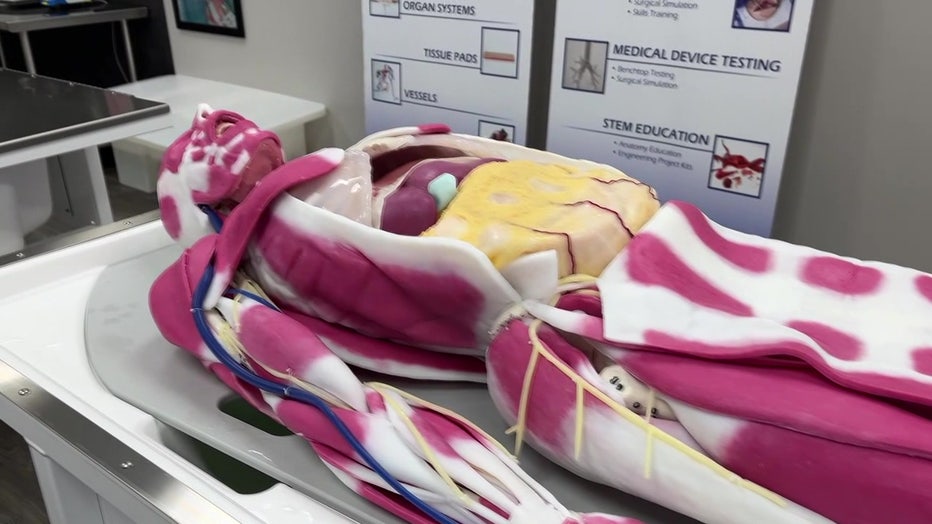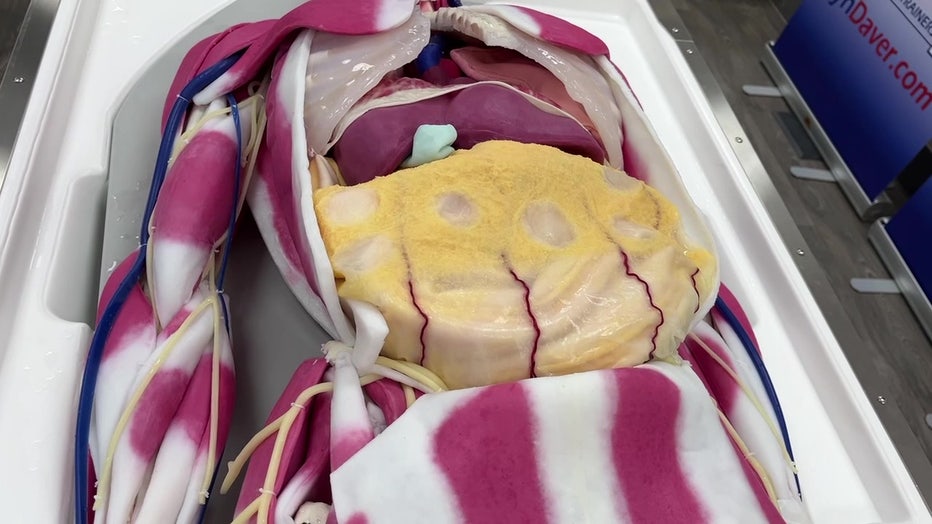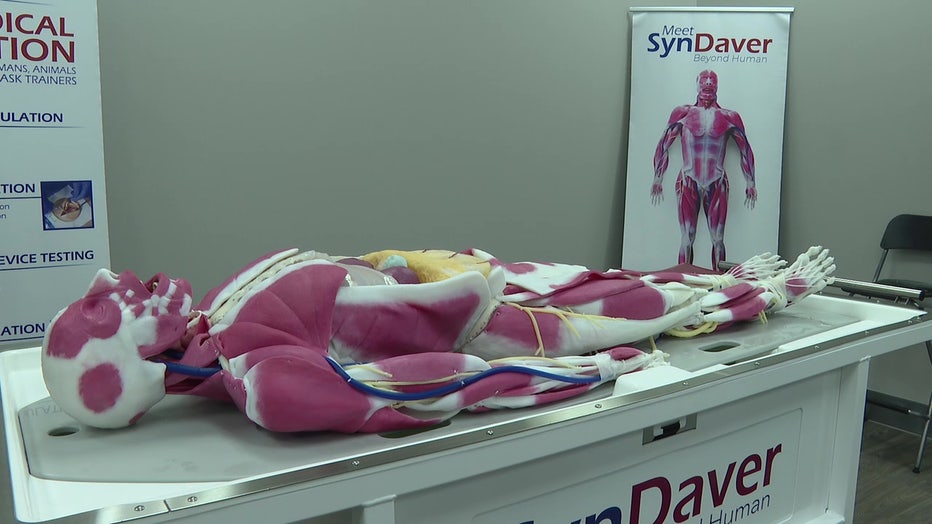Tampa company making realistic synthetic human to train students and surgeons
Company creates synthetic dummy to change cadavers
FOX 13's Kailey Tracy reports on a Tampa company rolling out its most realistic synthetic humans aimed at replacing traditional cadavers in classrooms and medical training around the world.
TAMPA, Fla. - A Tampa company is rolling out its most realistic synthetic humans aimed at replacing traditional cadavers.

Synthetic humans aimed at replacing traditional cadavers.
They’ll be used for anatomy education and medical training in classrooms around the world, just like the company’s other models.
SynDaver’s Vice President of Global Sales and Marketing, Tom Ewing, says each model is made by hand and takes about 140 hours to finish.
What they're saying:
"Every muscle, every piece is molded," Ewing said. We'll make molds for all of these pieces. Then, they're cast, individual pieces, and then they're all hand-sewn together."
READ: Bucs evaluating potential Raymond James Stadium improvements
"What we strive to do is create these synthetic cadavers as realistic as possible. Our mission is to replace the use of cadavers in education and being able to utilize these in simulation scenarios," Ewing said. "Both for surgical, both on human, as well as in veterinary, again, to reduce the reliance on any type of cadaveric models, kill surgeries potentially."

The latest human model features enhanced and improved organs, more synthetic ligaments (which some orthopedic and physical therapist customers requested) and improved aortic vasculature.
"This is about as lifelike as you’re going to get," Ewing said.
Dig deeper:
The tissue even mimics live tissue; it has fewer care requirements and is built to last up to ten years.
"Our latest synthetic humans are not only more precise, but they are also easier to maintain and built to last longer," said the CEO and Founder of SynDaver, Dr. Christopher Sakezles. "This evolution underscores our commitment to supporting educators and medical professionals with the most realistic teaching tools available, which not only improve education, but improve overall health outcomes for people and animals who undergo procedures where the surgeon was trained using a SynDaver."
WATCH: Plane bounces on runway at TPA, pilot prevents crash

"We've got proof papers on our surgical canine from a lot of the big universities, University of Florida and Texas A&M, and others in Cornell, that show that the learners' comfortability with doing procedures on these models," Ewing said. "Then, transitioning that over into actual surgical performance on their patients shows better proficiency, decreased case times and lower pain threshold for the patient."
Big picture view:
SynDaver also has other models, like canines.
Students can practice casting, splinting, and catheterization. Pathologies are incorporated to ensure students get the most realistic experiences possible.
CLICK HERE:>>> Follow FOX 13 on YouTube
The newest human model runs at about $74,000.
The company is starting a program to offer various financial options to help pay for the models, like financing and rentals.
The Source: FOX 13's Kailey Tracy collected the information in this story.
WATCH FOX 13 NEWS:
STAY CONNECTED WITH FOX 13 TAMPA:
- Download the FOX Local app for your smart TV
- Download FOX Local mobile app: Apple | Android
- Download the FOX 13 News app for breaking news alerts, latest headlines
- Download the SkyTower Radar app
- Sign up for FOX 13’s daily newsletter

